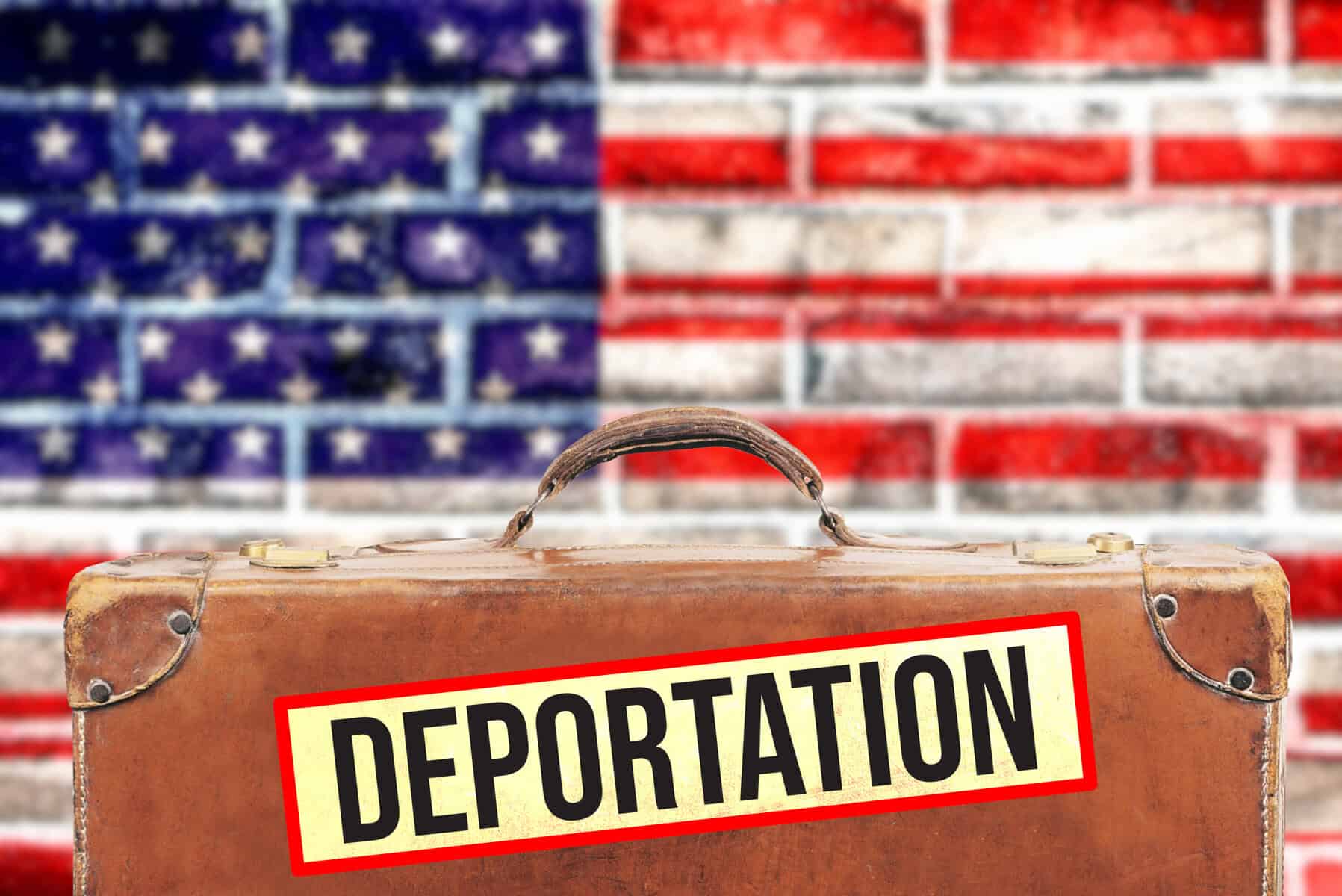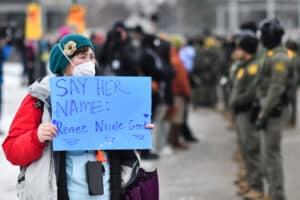US authorities deported five people to Eswatini under an alleged covert arrangement, without their families knowing.

Roberto Mosquera’s family had no trace of him for a month after he was arrested by US immigration agents, until a government social media post revealed he had been deported to Africa’s last absolute monarchy.
Immigration and Customs Enforcement (ICE) agents had picked up the 58-year-old Cuban at a routine check-in with immigration officials on June 13 in Miramar, Florida, said Ada, a close family friend, who spoke to AFP under a pseudonym for fear of US government retaliation.
They told his family they had sent him back to Cuba, she said, a country he had left more than four decades earlier as a 13-year-old.
A shocking discovery on social media
But on July 16, Ada recognised her lifelong friend in a photograph posted on X by US Assistant Homeland Security Secretary Tricia McLaughlin, who announced that Mosquera and four other detainees had been flown to tiny Eswatini.
It was a country Ada had never heard of, and 13 000 kilometres (8 000 miles) away, wedged between South Africa and Mozambique.
The Cuban and the nationals of Jamaica, Laos, Vietnam and Yemen were sent to the kingdom under a deal seen by AFP in which Eswatini agreed to accept up to 160 deportees in exchange for $5.1 million to “build its border and migration management capacity”.
The Jamaican, 62-year-old Orville Etoria, was repatriated to Jamaica in September but 10 more deportees arrived on October 9, according to the Eswatini government.
Washington said the five men sent to Eswatini were “criminals” convicted of charges from child rape to murder, but lawyers and relatives told AFP that all of them had long served their sentences and had been living freely in the United States for years.
In tightly controlled Eswatini, where King Mswati III’s government is accused of political repression, the deportees have been jailed in a maximum-security prison without any charge.
They have no access to legal counsel and are only allowed to talk to their families in minutes-long video calls once a week under the watch of armed guards, lawyers told AFP.
ALSO READ: Eswatini to accept 11 more deportees from the United States
The men are in a “legal black hole”, said US-based lawyer Tin Thanh Nguyen.
‘Not a monster’
“It’s like a bad dream,” said Ada, who has known Mosquera since childhood.
McLaughlin’s X post described him and the other four deportees as “individuals so uniquely barbaric that their home countries refused to take them back”.
In the attached photo, Mosquera sports a thick white beard, with tattoos peeping out of his orange shirt, and is described as a “latin king street gang member” convicted of “first-degree murder”.
But “he’s not the monster or the barbaric prisoner that they’re saying,” said Ada, whom AFP contacted through his lawyer.
Mosquera had been a gang member in his youth, she said, but he was convicted of attempted murder — not homicide -– in July 1989 for shooting a man in the leg.
Court documents seen by AFP confirmed he was sentenced to nine years in prison, released in 1996 and then jailed again in 2009 for three years, for offences including grand theft auto and assaulting a law enforcement official.
“When Roberto came out, he changed his life,” according to Ada. “He got married, had four beautiful little girls. He talks out against gang violence and has a family that absolutely loves him.”
A judge ordered his deportation after his first conviction overturned his legal residency, but he remained in the United States because Cuba often does not accept deportees, lawyers said.
ALSO READ: SA ‘deeply concerned’ by Eswatini’s decision to house dangerous criminals
He checked in with immigration authorities every year and had been working for a plumbing company for 13 years until his surprise detention and deportation, Ada told AFP.
“They have painted him out as a monster, which he’s not,” she said. “He’s redeemed himself.”
Denied legal support
The men sent to Eswatini were caught up in a push by the Trump administration to expel undocumented migrants to “third countries”, with others deported to Ghana, Rwanda and South Sudan in shadowy deals criticised by rights groups.
They were not informed they were being deported until they were already onboard the airplane, lawyers for each of them told AFP.
“Right when they were about to land in Eswatini, that’s when ICE gave them a notice saying you’re going to be deported to Eswatini. And none of them signed the letter,” said Nguyen, who represents men from Vietnam and Laos.
“It’s like modern-day human trafficking, through official channels,” he told AFP, describing how he was contacted by the Vietnamese man’s family after they too recognised his photo on social media.
The lawyer, who said he had been “a hotline” for the Southeast Asian community in the United States since Donald Trump came to power in January, trawled through Facebook groups to track down relatives of the other detainee described only as a “citizen of Laos”.
The deportees were denied contact with their lawyers and also with a local attorney, who tried to visit them in the Matsapha Correctional Centre 30 kilometres (20 miles) south of the capital Mbabane, infamous for holding political prisoners.
Eswatini attorney Sibusiso Nhlabatsi said he was told by prison officers that the men had refused to see him.
ALSO READ: UK plans tougher rules for migrants seeking to stay in country
“We know for a fact that’s not true,” said Alma David, the US-based lawyer for Mosquera and another deportee from Yemen.
Her clients told their families they were never informed of Nhlabatsi’s visits and had requested legal counsel on multiple occasions.
When David herself requested a private call with her clients, “the chief of the prison said, ‘no, you can’t, this is not like in the US’,” she said. The official told her to seek permission from the US embassy.
Nhlabatsi last week won a court application to represent the men but the government immediately appealed, suspending the ruling.
“The judges, the commissioner of the prison, the attorney general — no one wants to go against the king or the prime minister, so everybody is just running around in circles, delaying,” said Nguyen.
‘Layers of cruelty’
Eswatini, under the thumb of 57-year-old Mswati for 39 years, has said it intends to return all the deportees to their home countries.
But only one has been repatriated so far, the Jamaican Etoria.
Two weeks after his release, he was “still adjusting to life in a country where he hasn’t lived in 50 years”, his New York-based lawyer Mia Unger told AFP.
ALSO READ: Malema proposes solution to one-way migration of Nigerians to South Africa
Reportedly freed on arrival, he had completed a sentence for murder and was living in New York before ICE agents arrested him.
Etoria held a valid Jamaican passport and the country had not said they would refuse his return, despite the US administration’s claims that the deportees’ home countries would not take them back.
“If the United States had just deported him to Jamaica in the first place, that would already have been a very difficult and painful adjustment for him and his family,” Unger said.
“Instead, they send him halfway across the world to a country he’s never been to, where he has no ties, imprison him with no charges and don’t tell his family anything,” she said.
“The layers of cruelty are really surprising.”
Accused of crushing political opposition and rights activists, the government of Eswatini has given few details of the detainees or the deal it signed with the United States to take them in.
Nguyen said the new group of 10 included three Vietnamese, one Filipino and one Cambodian.
“Regardless of what they were convicted of and what they did, they’re still being used as pawns in a dystopian game exchanging bodies for money,” David told AFP.
The last time Mosquera’s family saw him, in a video call from the Eswatini jail last week, he had lost hair and “gotten very thin”, Ada said.
“This has taken a toll on everybody,” she said, her voice breaking. “It’s atrocious. It’s a death sentence.”
NOW READ: US detains hundreds of South Koreans in factory immigration raid






